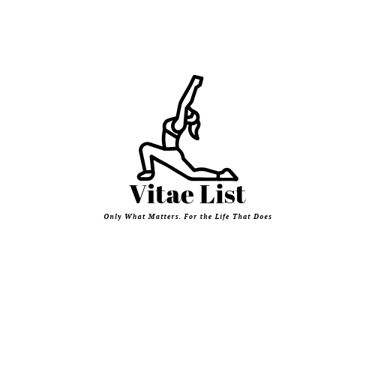Strength Training on Special Diets: Keto, Vegan, and Paleo Approaches
Keto, vegan, paleo—can you still build strength on these diets? Explore how to fuel strength training on special diets with tips for protein, recovery, and performance.
NUTRITION
Vitae List
10/8/20253 min read


Strength Training on Special Diets: Keto, Vegan, and Paleo Approaches
Disclosure: Vitae List is a participant in the Amazon Services LLC Associates Program, an affiliate advertising program designed to provide a means for sites to earn fees by linking to Amazon.com and affiliated sites. As an Amazon Associate, we earn from qualifying purchases at no extra cost to you.
Why Special Diets Matter for Strength Training
Strength training isn’t one-size-fits-all—and neither is nutrition. Many athletes follow specific eating styles, whether by choice, health reasons, or lifestyle: keto, vegan, paleo, and beyond.
But the question is: Can you still build muscle and strength while following these diets?
The short answer: Yes. Each diet can work if you understand how to structure it around the core pillars of strength training nutrition: protein intake, energy balance, recovery fuel, and micronutrients.
Let’s break it down diet by diet.
Strength Training on Keto
The keto diet is very low in carbs (typically under 50g/day), moderate in protein, and high in fat. It shifts the body into ketosis, where fat becomes the main energy source instead of carbohydrates.
Challenges for Strength Athletes on Keto
Lower glycogen stores: Carbs are the body’s preferred fuel for lifting and explosive strength.
Adaptation period: Performance may dip during the first 2–4 weeks as the body adapts.
Protein balance: Too much protein can kick you out of ketosis, so balance is tricky.
Strategies for Success
Focus on protein quality: Grass-fed beef, poultry, eggs, whey isolate, or keto-friendly plant proteins.
Use targeted carbs if needed: Some lifters use “targeted keto” (adding 20–30g carbs pre-workout for energy).
Micronutrient support: Add electrolytes (sodium, magnesium, potassium) since keto can deplete them.
📌 Best keto post-workout meal: grilled chicken thighs with avocado and a leafy green salad topped with olive oil.
Strength Training on a Vegan Diet
The vegan diet excludes all animal products, relying solely on plants. It can absolutely support strength, but careful planning is essential.
Challenges for Strength Athletes on Vegan Diets
Protein quality and quantity: Plant proteins often lack certain essential amino acids (like leucine).
Iron and B12 intake: Animal products are rich sources, so supplementation may be needed.
Omega-3 balance: Vegan diets tend to be low in EPA/DHA fatty acids.
Strategies for Success
Mix plant proteins: Combine legumes, grains, nuts, and seeds to cover all amino acids.
Use supplements wisely: B12, vegan omega-3s (algae oil), and sometimes vitamin D or iron.
Leverage protein powders: Pea, rice, or blended vegan protein powders can make hitting 120–180g daily much easier.
📌 Best vegan post-workout meal: lentil and quinoa bowl with roasted veggies, tahini drizzle, and a scoop of pea protein blended into a smoothie.
Strength Training on a Paleo Diet
The paleo diet emphasizes eating like our ancestors: whole, unprocessed foods—lean meats, fish, vegetables, fruit, nuts, and seeds. It excludes grains, legumes, dairy, and processed foods.
Challenges for Strength Athletes on Paleo
Carb availability: With no grains or legumes, carb options are more limited.
Calcium and vitamin D: Without dairy, athletes must seek alternative sources.
Convenience: Paleo can be restrictive, making on-the-go fueling harder.
Strategies for Success
Lean on starchy vegetables and fruits: Sweet potatoes, squash, berries, and bananas provide workout fuel.
Bone broth & fish: Boost calcium and mineral intake.
Nuts and seeds: Great for healthy fats, but watch portions to avoid excess calories.
📌 Best paleo post-workout meal: grilled salmon with roasted sweet potatoes and sautéed spinach.
Key Takeaways Across All Diets
Protein is king: Aim for 0.7–1g per pound of body weight, no matter the diet.
Don’t ignore carbs: Even on lower-carb diets, carbs around workouts can enhance performance.
Micronutrients matter: Vitamin D, iron, B12, calcium, and omega-3s are common gaps across restrictive diets.
Supplements fill gaps: Whether it’s whey on keto, B12 on vegan, or vitamin D on paleo, supplementation ensures balance.
Sample Post-Workout Fuel by Diet
Keto: whey protein isolate + avocado smoothie.
Vegan: pea/rice protein shake with banana and almond butter.
Paleo: chicken breast + roasted sweet potatoes.
The Bottom Line
Strength training is possible on any diet—keto, vegan, paleo, or otherwise—if you plan carefully.
Whole foods provide the foundation, supplements fill gaps, and consistency drives progress. Whether you’re lifting heavy on steak and sweet potatoes, quinoa and lentils, or avocados and salmon, the key is meeting your body’s needs for protein, recovery fuel, and micronutrient balance.
Your diet doesn’t limit your strength potential—your strategy does.
